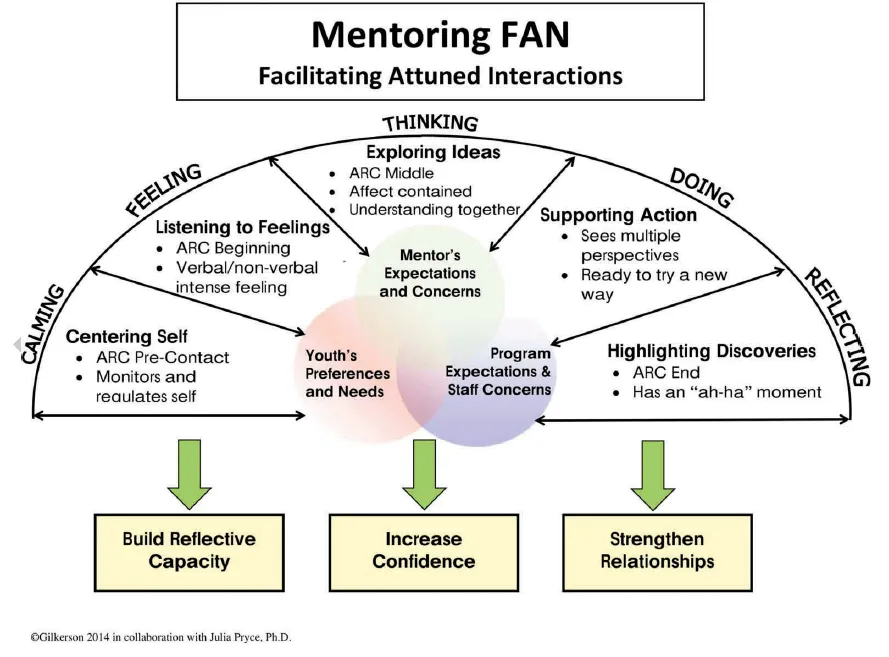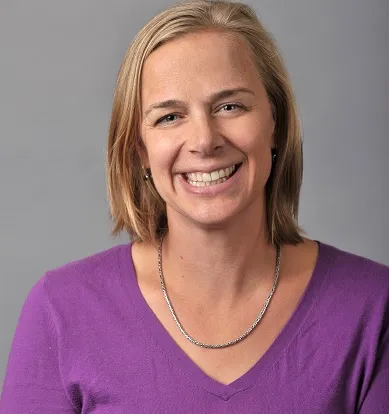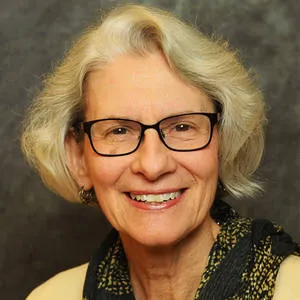August 1, 2022 New Professional Development Opportunity for Mentoring Program Staff
Mentor Canada is offering a unique professional development opportunity to a select number of Canadian mentoring program professionals on attunement in relationships and using the FAN (Facilitating Attuned Interactions) model.
Please note that at this time, the training for staff members is only available in English. We will be developing a self-directed online training for mentors to complement the staff training in 2023.
Why attunement and the FAN model?
Attunement involves the ability to be mindful of others needs and preferences and respond to them in a timely, sensitive, and appropriate manner which can help them feel heard and seen. The FAN model helps build stronger connections between mentoring practitioners and mentors, which can also help mentors develop stronger connections with their mentees. Research has shown that the FAN model increased the amount of constructive feedback mentors received from staff members, which increased their confidence as mentors and helped them build new knowledge and skills for mentoring.

I was able to grow just in terms of really, um, attending to the, um, mentor. I developed a real intentionality about observing their cues, um, and asking more probing questions depending on where they're at... I guess I became a better listener in the process. Just thinking more about where they're at and what they're ready for before I begin to provide feedback...
- Staff member who participated in a FAN training (cited in Pryce, Gilkerson, and Barry, 2018
The training will be facilitated by Dr. Julia Pryce and Dr. Linda Gilkerson.

Dr. Julia Pryce, Loyola University
Dr. Pryce’s research focuses on school-based interventions, the role of mentors in the lives of system-involved youth, and program development. Her additional areas of scholarship include the development and study of mentoring programs internationally and the role of social justice in social work curricula. Dr. Pryce teaches in the HBSE and research sequences in the undergraduate, Masters, and doctoral programs.

Dr. Linda Gilkerson, Erikson Institute
Dr. Gilkerson’s area of specialization is early intervention. She has made notable contributions toward improving knowledge and practice with young children with disabilities and with children in the Neonatal Intensive Care Units (NICU). She also developed a model for interacting with families known as the FAN (Facilitating Attuned Interactions), which is at the root of the direct service work Fussy Baby does through its home visiting and “warm line” phone service components.
Who should apply to participate in the training?
This training is intended for mentoring program staff that provide direct support to mentors or to other program staff and who are interested in enhancing their communications skills to support relationship connection. Selected participants must be able to attend all parts of the training listed below.
The training is free but space is limited. Eligibility is restricted to program staff members located in Canada. At this time, the training for staff members is only available in English.
What is the required commitment?
The training includes 2 half-day training sessions, 3 1-hour group facilitated practice sessions, and 1 focus group to provide insights on the training. The total time commitment is approximately 10 hours. The schedule is as follows:
-
2 training sessions: October 20 and 25, 1-4 Eastern (11-2 Mountain).
-
3 facilitated practice sessions: November 15, 29, and December 13, 1-2 Eastern (11-12 Mountain).
-
1 focus group: December 6, 1-2 Eastern (11-12 Mountain).